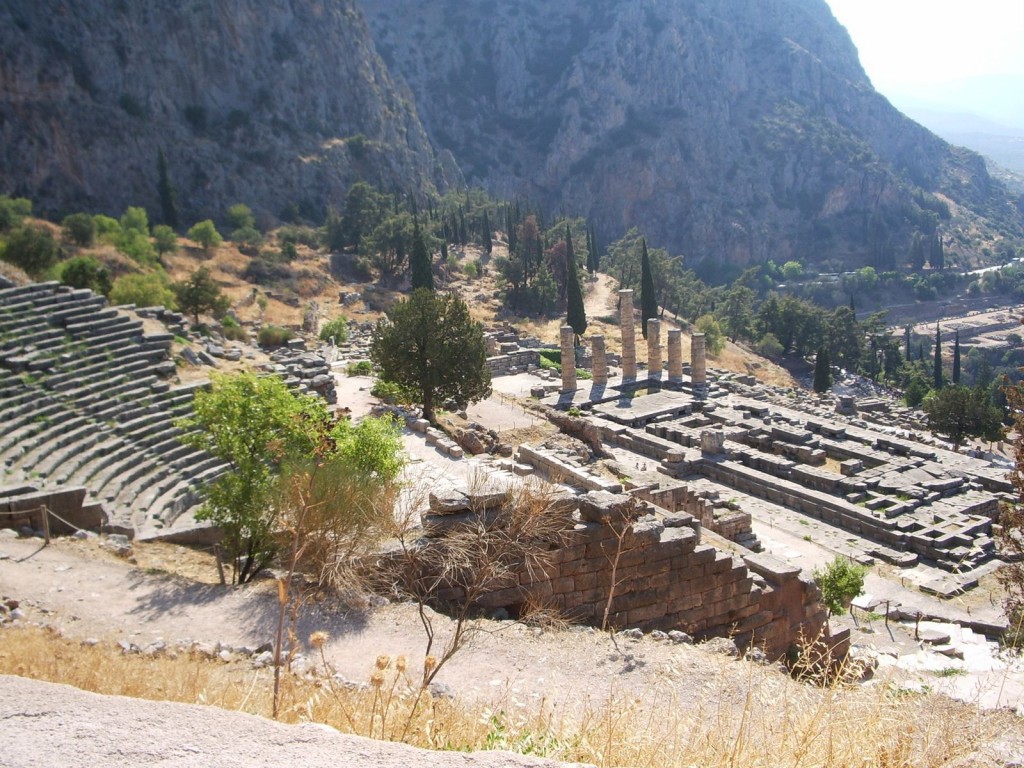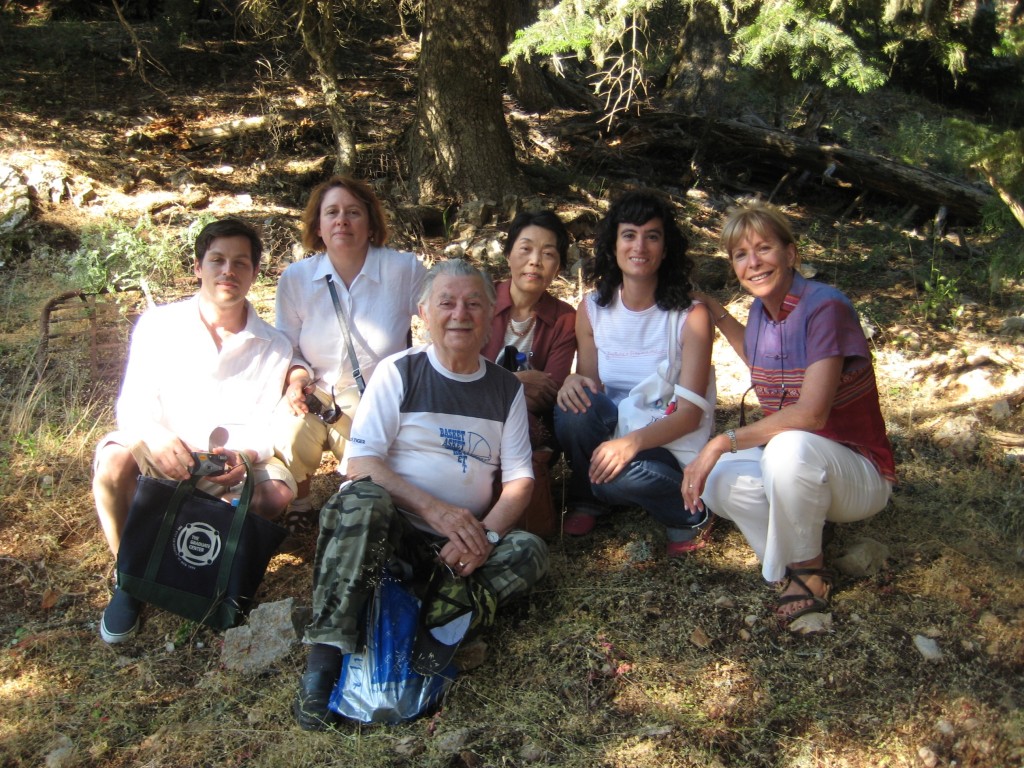“Americans and the Experience of Delphi,” June 24-26, Delphi, Greece.
Presented by the Richard Stockton College Interdisciplinary Center for Hellenic Studies; Executive Director: Tom Papademetriou, Conference Director, David Roessel.
On one side of the Philadelphia Art Museum stands a replica of the famous statue of “The Charioteer” in the archaeological museum of Delphi. The statue is more than simply a copy of a famous work of art; it also represents a cultural matrix linked to the ancient shrine of Apollo at Delphi, a matrix that centers on what it means to be human and happy as encapsulated in the phrases “know yourself” and “nothing in excess.” Often in current discourse “Greek” or “Hellenic” is taken as a single ideological construct, but “Greece” as an idea is polymorphous and multicultural, and Delphi occupies a key place within that ideological construct. By understanding what it meant, and continues to mean, in the modern age, we take a step toward knowing ourselves. And within that step, of course, lies the meaning of Apollo’s sanctuary.
Participants in this symposium examined the work of American and European artists, writers, and scholars who stood at the ancient site and, like the founders of the famed Provincetown Players, George Cram Cook and Susan Glaspell, inhabited Delphi in body and mind. Participants analyzed how the “spirit” of Delphi inspired individuals, and how they in turn infused that spirit into American literature and culture, presenting, in addition to Glaspell and Cook, papers on Isadora Duncan, Eva Palmer Sikelianos and her role in the Delphic Festivals of the 1920s, H. D., Henry Miller, and James Merrill.
Susan Glaspell Society Panels and Papers:
June 24, George Cram Cook Session, Chair Christa Frantantoro:
“Jig Cook’s Road to the Temple,” Linda Ben-Zvi, Tel Aviv University.
June 25, Susan Glaspell Session, Chair Marina Angel:
“Letters Home: Susan Glaspell’s Experience of Delphi,” Barbara Ozieblo, University of Málaga;
“Susan Glaspell’s Greece: the people, the place and the past,” Martha C. Carpentier, Seton Hall University;
“Susan Glaspell’s Female Charioteers: the spirit of Delphi and Aristotle’s Poetics in Inheritors, The Verge, and The Comic Artist,” Noelia Hernando-Real, Universidad Autónoma de Madrid;
“The Noble Peasant: Humanism and Primitivism in Glaspell’s Life and Work,” Michael Winetsky, The Graduate Center of the City University of New York.
June 26, L’Envoi to George Cram Cook Session, Chair David Roessel:
“The Influence of George Cram Cook’s Delphic Spirit on Eugene O’Neill,” Michael Solomonson; Northland Pioneer College.
University of Athens students presented a spirited reading of Suppressed Desires on the evening of the 26th.
For more information:
Delphi Symposium Program
Susan Glaspell Paper Abstracts

The Theatre of Dionysus and Temple of Apollo at Delphi, which Glaspell celebrated in Fugitive's Return and The Road to the Temple.

Linda Ben-Zvi and guide take us to Susan and Jig's camp in Kalania (SGS members left to right, Michael Winetsky, Martha Carpentier, Yoko Chase, Noelia Hernando-Real, and Linda Ben-Zvi). "The forest opens and gives us Kalania--the mountain park, that secret beauty, loveliness that is like a heart, a heart guarded by mountains of spruce" (The Road to the Temple 261).
